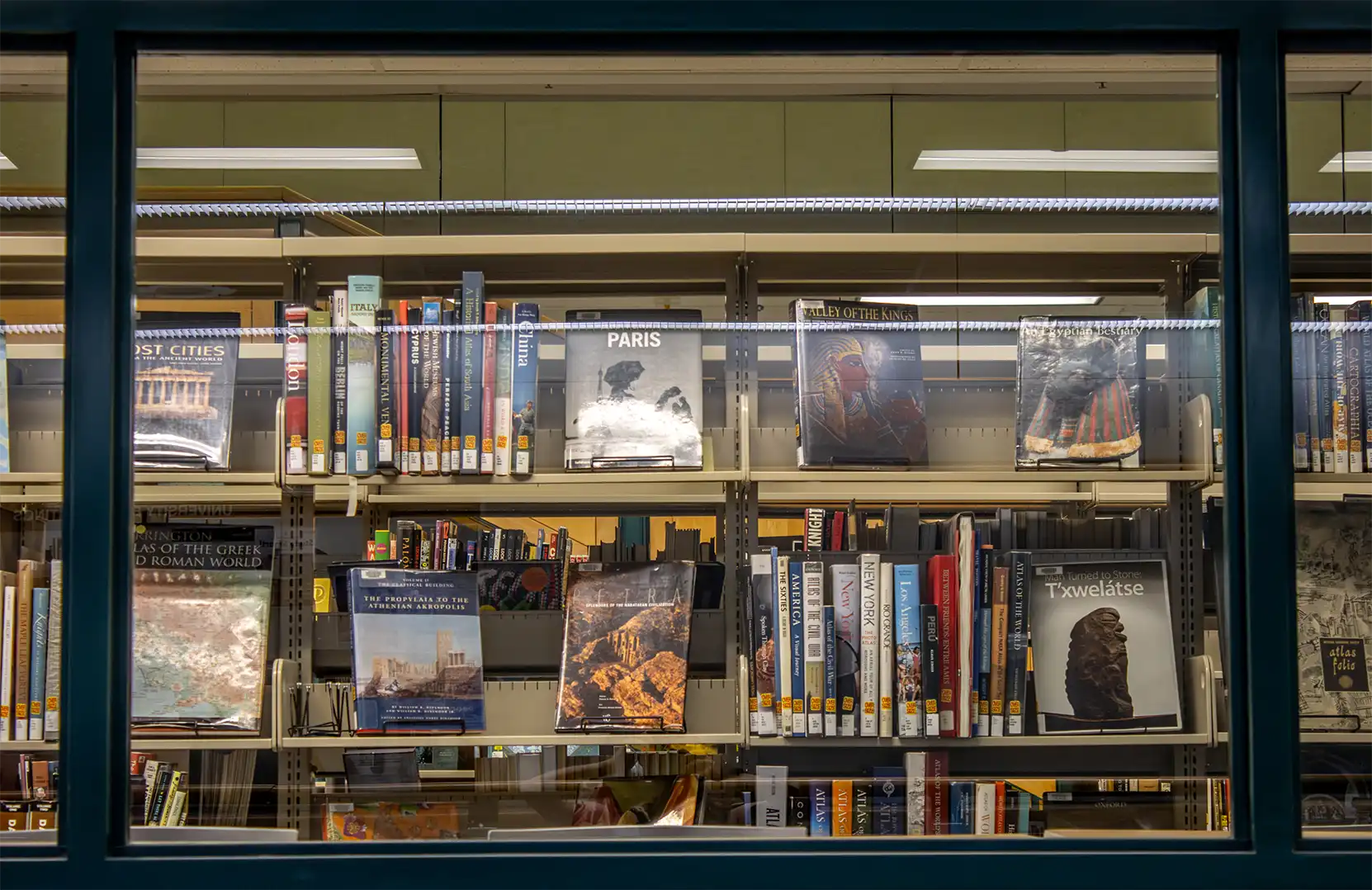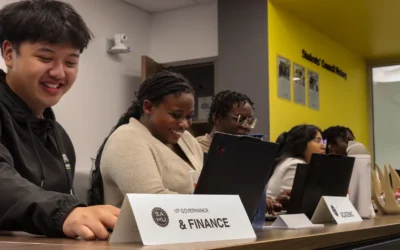Photo: Amanda Erickson/The Griff
The Textbook Affordability program is continuing to look for alternatives.
Depending on the program, domestic students could pay up to $1,000 for textbooks in a single semester. MacEwan’s textbook affordability program aims to alleviate the financial burden by providing funding in the form of grants towards instructor-created textbooks through MacEwan Open Books, the university’s in-house publishing company, along with purchasing ebooks for students to use, and the textbook alternative service, which aims to find affordable resources.
Established in 2024, the library-led program receives funding from MacEwan and has made attempts to purchase textbooks students may not be able to afford.
Before the program, the library began to carry textbooks for students to borrow. The library stocks at least one physical copy per class; however, they’re only available to borrow for four hours at a time. Recently, the program has made efforts to purchase ebook versions of textbooks to add to the library collection.
“Usually they’re limited to one or two users at a time, but at least it’s broadening out that access again,” says Robyn Hall. Hall is the outgoing interim associate dean of the library and has supported open access publication for the past 13 years.
“Students have to purchase their textbook. They need the learning materials, and frequently we’ve seen prices just go higher and higher and higher.”
— Danielle Deschamps
Another piece of the program has been directed to developing MacEwan’s Open Textbook Book Grant, which provides instructors up to $5,000 to develop open-source textbooks for their classes, which would be freely available for students to use.
Established in 2018, the Open Books program has only published eight textbooks, with 10 more on the way.
The program also launched a textbook alternative service in spring, which aims to aid instructors in finding alternative and affordable material for their courses. “So that could include, we might look for open textbooks, but it could even be just more affordable, commercial textbooks, or library licensed resources, including articles, books, etc, that all students can access,” says MacEwan open education librarian Danielle Deschamps.
At the moment, about five or six instructors have used the textbook alternative service.
“Students have to purchase their textbook. They need the learning materials, and frequently we’ve seen prices just go higher and higher and higher,” says Deschamps.
Commercial publishing has a firm grasp on universities. “It’s around like a three or four billion dollar industry, and the market is students. It’s only students.” Deschamps explained. “They’re not selling to anybody else. So over time, what we’ve seen is that textbook costs have risen much higher than inflation rates, and part of that is the commercial publishing industry kind of has a captive market in students.”
Hall and Deschamps admit they need to continue finding ways to make the textbook affordability program easier for instructors. “Every single person I’ve talked to at MacEwan, faculty, administrators, students, they’re all in support of this in theory,” says Hall. “But for our faculty members, they always say they need time to change their resources over to something that’s going to be of equal quality, because the publishers are packaging things that are so perfectly put together that it’s hard to replicate that off the side of your desk.”
Hall and Deschamps suggest students can speak to their instructors if textbook costs become a barrier to their education.“Because if the instructors aren’t hearing it, you know, they’re not going to necessarily prioritize changing what they’re up to,” Hall said.





0 Comments